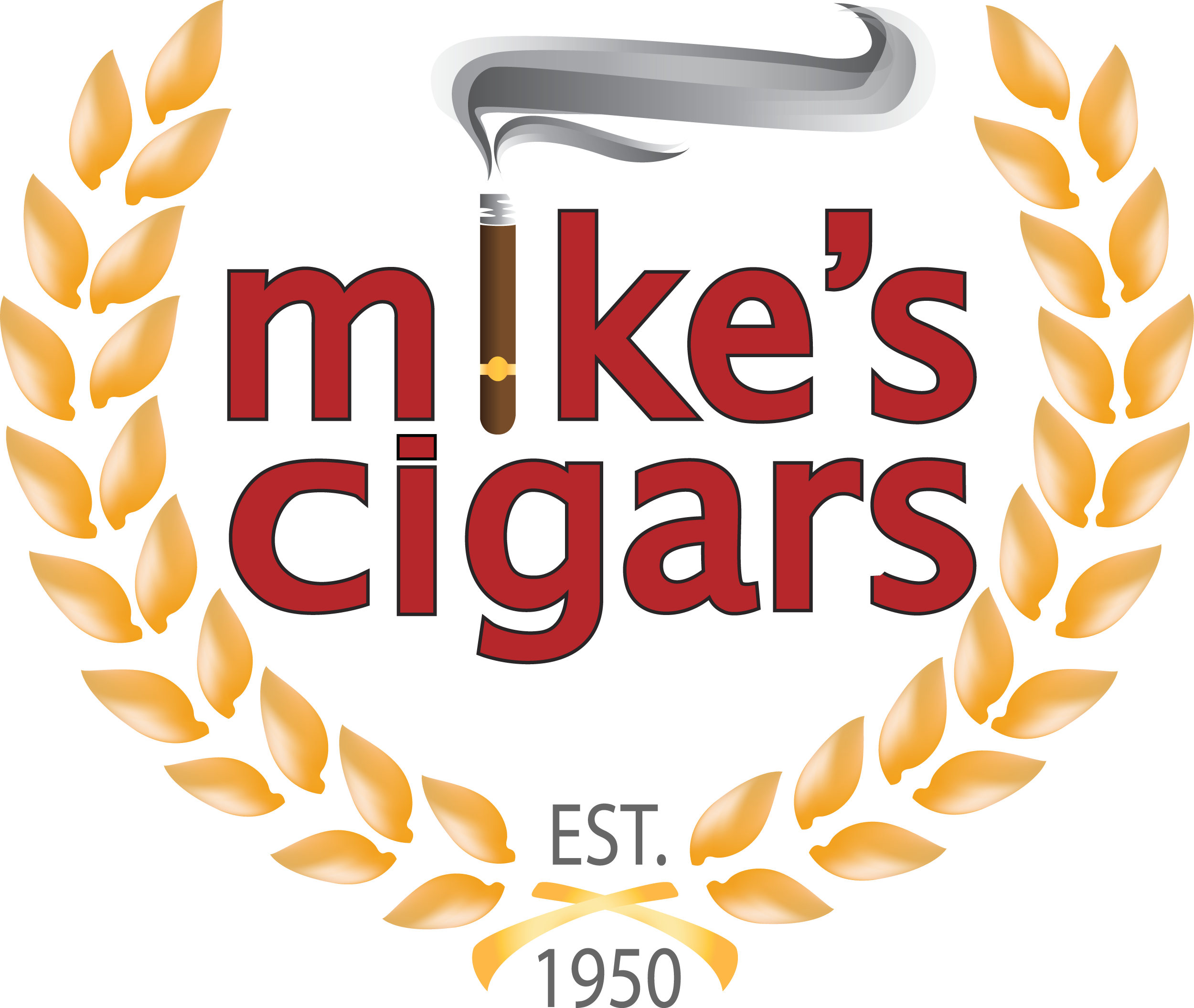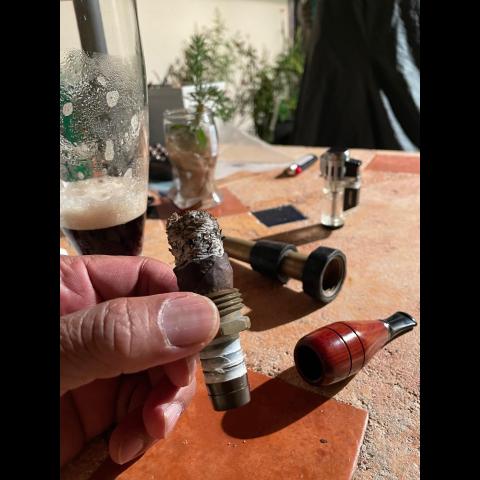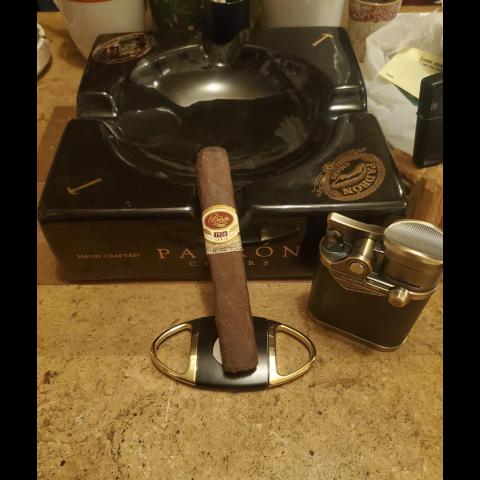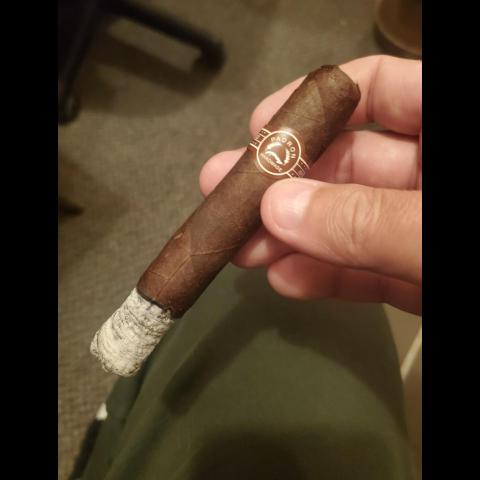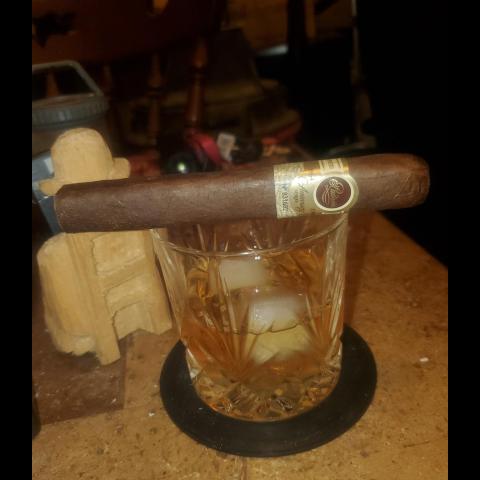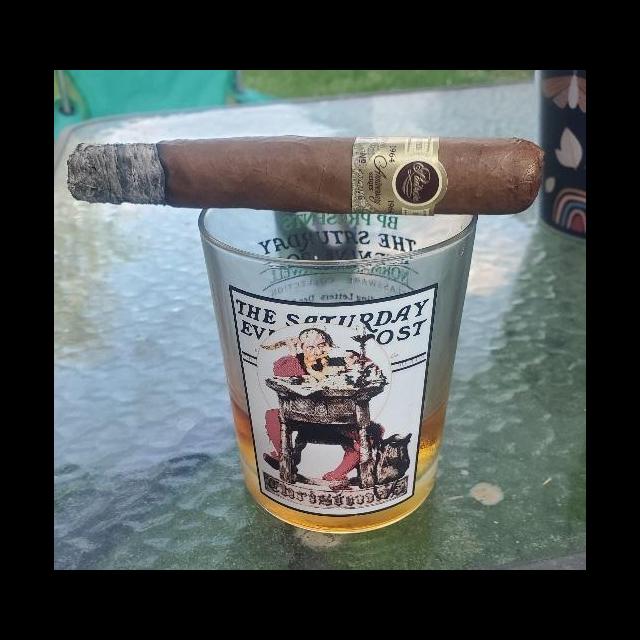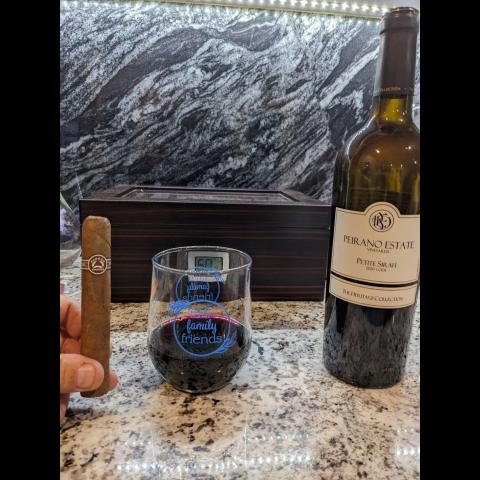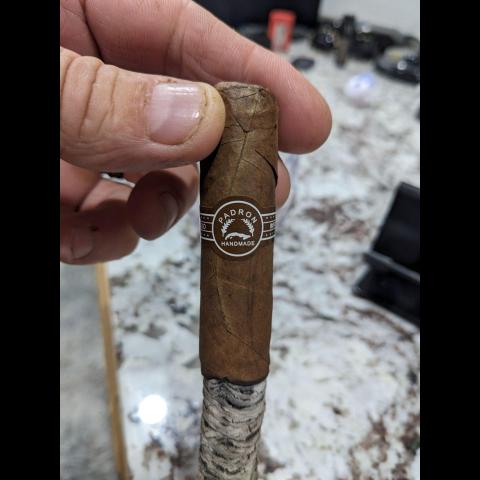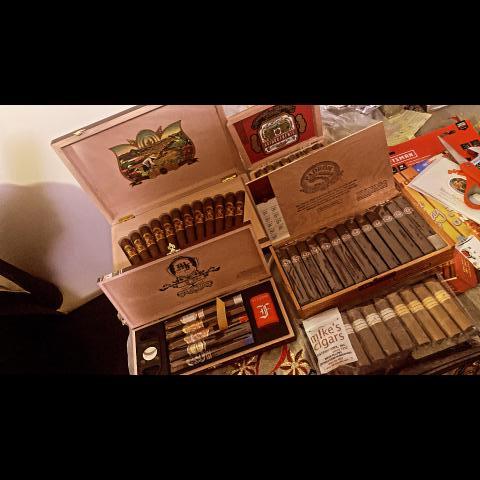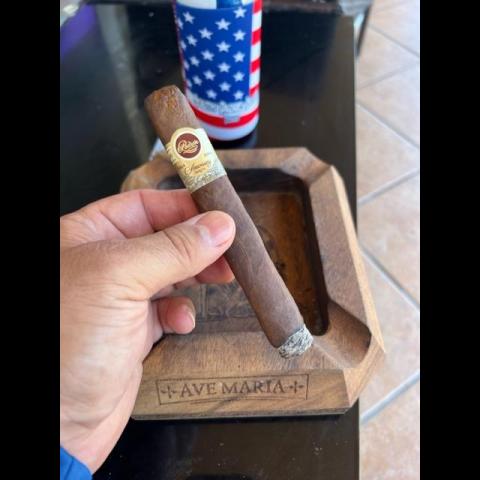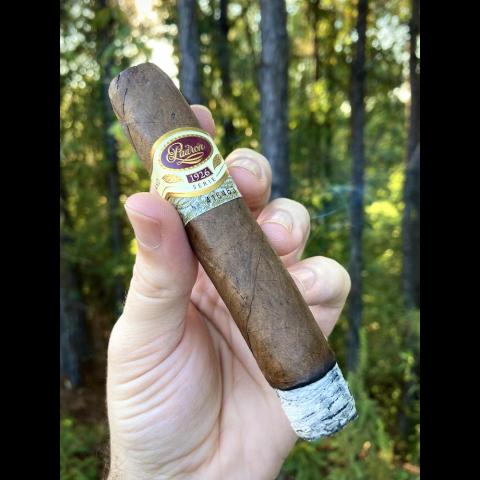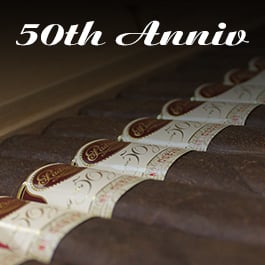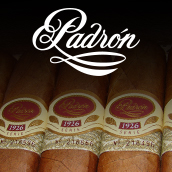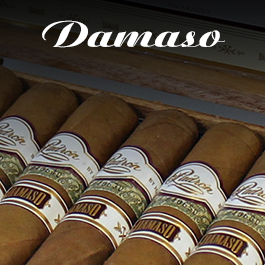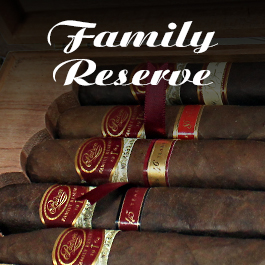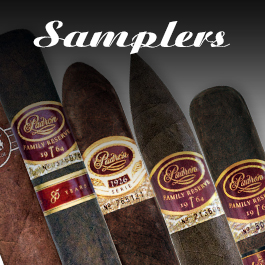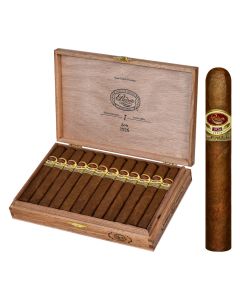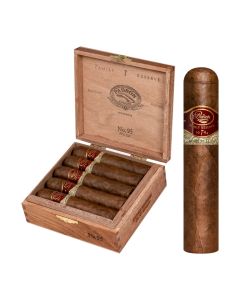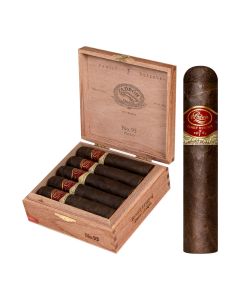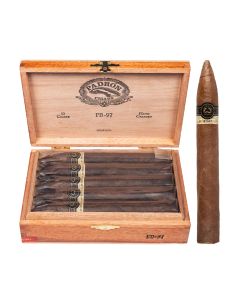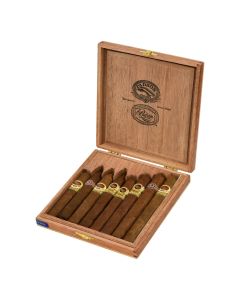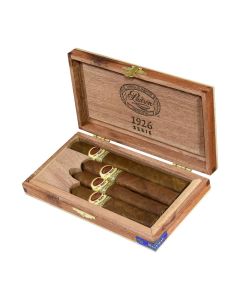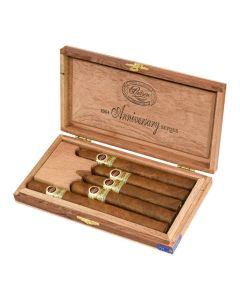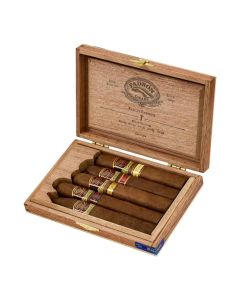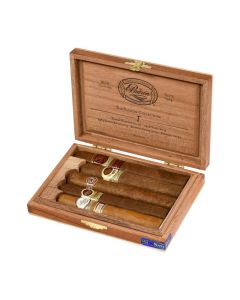Padron Cigars

PADRON
With a video you can recall the sights and sounds. But, with a Padrón cigar, you are enveloped in the same rich aromas. With the same decadent flavors rolling over your palate.
If you close your eyes you are back in that same moment. Shaking those same hands, saying those same goodbyes, or feeling the same warmth of that welcome home.
Padrón has perfected this unprecedented consistency through centuries of cigarmaking wisdom handed down through generations. Dámaso Padrón laid the foundation for the Padrón legacy in the 1800s. A young Dámaso moved to Cuba with little money to his name.
But he used the meager work in the tobacco fields to build his own network of tobacco farms. All around the Pinar del Rio region. With one factory in Piloto, which inspired Piloto Cigars Inc., the Padrón family’s privately held company owns Padrón Cirgars.
His grandson, José Orlando Padrón, carried the mantel of that family business until 1961 with the rise of Fidel Castro. José’s tobacco farm was nationalized under the new regime. So he fled Cuba for the U.S., eventually making his way to the city of Miami. Finding a welcoming community in Miami Dade County.
In Miami, José earned just $60 a month which was given by the U.S. government as aid for Cuban refugees. Unable to find work, with a family to provide for, José famously stated. “Every time I cashed that check, I felt like a burden on the country that had taken me in…. I was determined to do something so that I could support my family.”
One day a friend working at the Cuban Refugee Office gifted José a small hammer. Lovingly dubbed El Martillito, to help him get a job in carpentry. That gift revived the Padrón legacy, reigniting the passion for cigarmaking which was José’s birthright. With that Martillito Jose worked to save up $600 and founded Padrón Cigars in 1964 in Little Havanna.
Padrón quickly gained popularity for its traditional Cuban style and José’s ardent devotion to quality. To keep up with the increasing demand José moved manufacturing out to Estelí, Nicaragua in 1970. Using the finest tobacco from the Jalapa valley, under the name “Tabacos Cubanica.”
Unfortunately, just eight years later, Civil War erupted in the region and the factory in Estelí was burnt down. Prompting a new factory to be built in Honduras under “Tabacos Centroamericanos” while the factory in Estelí was being rebuilt.
At this same time, José, along with five other Cuban American businessmen, traveled back to Cub. The goal was to meet with Castro to negotiate the release of political prisoners. The visit sparked an enormous amount of controversy within the Miami community.
From the late 1970s to the early 1980s, the tension boiled over. Resulting in the defacing of the Miami headquarters with hateful slurs against José. With four separate occasions where bombs were placed at the building, with three successfully detonating taking out sections of the structure.
While dealing with the brewing turmoil in Miami, José managed to broker peace with the leaders of the Sandinista rebellion. Which had control of Nicaragua so that the factory in Estelí would be left unharmed. Soon after Tabacos Cubanica renewed operations there.
Unfortunately, a few short years later, in 1985, President Reagan imposed an economic embargo against Nicaragua; all exports to the U.S. were banned. José moved all production to the factory in Honduras and worked quickly to move as much of the Nicaraguan stock stateside as possible.
In 1990, with the Democratic removal of the Sandinista Party from Nicaragua, the embargo was finally lifted and production moved back to Nicaragua, where it remains today.
Padrón went on to survive a forcible takeover of another Nicaragua farm by squatters in 1990, the destruction of farms by Hurricane Mitch in 1998, and an influx of Padrón counterfeits which prompted the company to use an anti-counterfeit label in 2001 with their select anniversary cigars each receiving its own six digit serial number. In the face of all this adversity, Padrón released highly acclaimed Nicaraguan puro cigars which have been named by some to be among the best cigars ever made.
1994 saw the introduction of the Series 1964 celebrating 30 years of Padrón. In 2002, in honor of José’s 75th birthday, the eminent Series 1926 blend was introduced; with the 40th anniversary release in 2004 earning the Cigar Aficionados Best Cigar of the Year for 2004. The lowest rating both the Series 1926 and Series 1964 have received is a 90. In fact, in the Maduro or the Natural leaf wrapper, all offerings by Padrón have ranked 90 and above.
More recently, Padrón celebrated Dámaso Padrón with its 2015 introduction of the Padrón Dámaso line.
Padrón, with José, and now also his son Jorge, at the helm, continues to maintain a fervent dedication to quality and consistency through implementing vertical integration of all the processes of production to maintain strict adherence to exacting standards—from cultivation to packaging.
Because of this Padrón dedication, beyond the high ratings and critical acclaim, the best praise is rendered from aficionados of all walks of life who write to Padrón giving their stories of the special moments they commemorated with a Padrón, and how special a moment it was trying their first Padrón.
Recently, the Padron 1964 Anniversary Series received a near perfect 97 point rating. One of the highest scores that year in the entire tobacco industry. The stick was awarded Cigar of the Year for 2021.
Constructed using only flawless Nicaraguan tobacco leaves. The 1964 Anniversary blend is described as medium to full bodied. Bursting with a symphony of luxurious tastes that are truly unforgettable. It may be the finest Nicaraguan Cigar Padron has ever rolled.
Even its latest size managed to make the Top 25 Cigars of 2022. Managing to receive constant critical praise that is sure to continue.
Every aficionado, for that special occasion, should experience the centuries of wisdom, handed down through generations that, thanks to one man and his dream, survived despots, revolutions, and bombings to become their choice smoke to capture memories, with quality so nonpareil that each cigar creates its own unforgettable occasion.
...Read More
If you close your eyes you are back in that same moment. Shaking those same hands, saying those same goodbyes, or feeling the same warmth of that welcome home.
Padrón has perfected this unprecedented consistency through centuries of cigarmaking wisdom handed down through generations. Dámaso Padrón laid the foundation for the Padrón legacy in the 1800s. A young Dámaso moved to Cuba with little money to his name.
But he used the meager work in the tobacco fields to build his own network of tobacco farms. All around the Pinar del Rio region. With one factory in Piloto, which inspired Piloto Cigars Inc., the Padrón family’s privately held company owns Padrón Cirgars.
His grandson, José Orlando Padrón, carried the mantel of that family business until 1961 with the rise of Fidel Castro. José’s tobacco farm was nationalized under the new regime. So he fled Cuba for the U.S., eventually making his way to the city of Miami. Finding a welcoming community in Miami Dade County.
In Miami, José earned just $60 a month which was given by the U.S. government as aid for Cuban refugees. Unable to find work, with a family to provide for, José famously stated. “Every time I cashed that check, I felt like a burden on the country that had taken me in…. I was determined to do something so that I could support my family.”
One day a friend working at the Cuban Refugee Office gifted José a small hammer. Lovingly dubbed El Martillito, to help him get a job in carpentry. That gift revived the Padrón legacy, reigniting the passion for cigarmaking which was José’s birthright. With that Martillito Jose worked to save up $600 and founded Padrón Cigars in 1964 in Little Havanna.
Padrón quickly gained popularity for its traditional Cuban style and José’s ardent devotion to quality. To keep up with the increasing demand José moved manufacturing out to Estelí, Nicaragua in 1970. Using the finest tobacco from the Jalapa valley, under the name “Tabacos Cubanica.”
Unfortunately, just eight years later, Civil War erupted in the region and the factory in Estelí was burnt down. Prompting a new factory to be built in Honduras under “Tabacos Centroamericanos” while the factory in Estelí was being rebuilt.
At this same time, José, along with five other Cuban American businessmen, traveled back to Cub. The goal was to meet with Castro to negotiate the release of political prisoners. The visit sparked an enormous amount of controversy within the Miami community.
From the late 1970s to the early 1980s, the tension boiled over. Resulting in the defacing of the Miami headquarters with hateful slurs against José. With four separate occasions where bombs were placed at the building, with three successfully detonating taking out sections of the structure.
While dealing with the brewing turmoil in Miami, José managed to broker peace with the leaders of the Sandinista rebellion. Which had control of Nicaragua so that the factory in Estelí would be left unharmed. Soon after Tabacos Cubanica renewed operations there.
Unfortunately, a few short years later, in 1985, President Reagan imposed an economic embargo against Nicaragua; all exports to the U.S. were banned. José moved all production to the factory in Honduras and worked quickly to move as much of the Nicaraguan stock stateside as possible.
In 1990, with the Democratic removal of the Sandinista Party from Nicaragua, the embargo was finally lifted and production moved back to Nicaragua, where it remains today.
Padrón went on to survive a forcible takeover of another Nicaragua farm by squatters in 1990, the destruction of farms by Hurricane Mitch in 1998, and an influx of Padrón counterfeits which prompted the company to use an anti-counterfeit label in 2001 with their select anniversary cigars each receiving its own six digit serial number. In the face of all this adversity, Padrón released highly acclaimed Nicaraguan puro cigars which have been named by some to be among the best cigars ever made.
1994 saw the introduction of the Series 1964 celebrating 30 years of Padrón. In 2002, in honor of José’s 75th birthday, the eminent Series 1926 blend was introduced; with the 40th anniversary release in 2004 earning the Cigar Aficionados Best Cigar of the Year for 2004. The lowest rating both the Series 1926 and Series 1964 have received is a 90. In fact, in the Maduro or the Natural leaf wrapper, all offerings by Padrón have ranked 90 and above.
More recently, Padrón celebrated Dámaso Padrón with its 2015 introduction of the Padrón Dámaso line.
Padrón, with José, and now also his son Jorge, at the helm, continues to maintain a fervent dedication to quality and consistency through implementing vertical integration of all the processes of production to maintain strict adherence to exacting standards—from cultivation to packaging.
Because of this Padrón dedication, beyond the high ratings and critical acclaim, the best praise is rendered from aficionados of all walks of life who write to Padrón giving their stories of the special moments they commemorated with a Padrón, and how special a moment it was trying their first Padrón.
Recently, the Padron 1964 Anniversary Series received a near perfect 97 point rating. One of the highest scores that year in the entire tobacco industry. The stick was awarded Cigar of the Year for 2021.
Constructed using only flawless Nicaraguan tobacco leaves. The 1964 Anniversary blend is described as medium to full bodied. Bursting with a symphony of luxurious tastes that are truly unforgettable. It may be the finest Nicaraguan Cigar Padron has ever rolled.
Even its latest size managed to make the Top 25 Cigars of 2022. Managing to receive constant critical praise that is sure to continue.
Every aficionado, for that special occasion, should experience the centuries of wisdom, handed down through generations that, thanks to one man and his dream, survived despots, revolutions, and bombings to become their choice smoke to capture memories, with quality so nonpareil that each cigar creates its own unforgettable occasion.
...Read More
Limited Edition
Padron
Padron 1926 Serie
Padron 1964 Anniversary
Padron Damaso
Padron Family Reserve
Padron Samplers
Page 1 of 1
Show
per page
